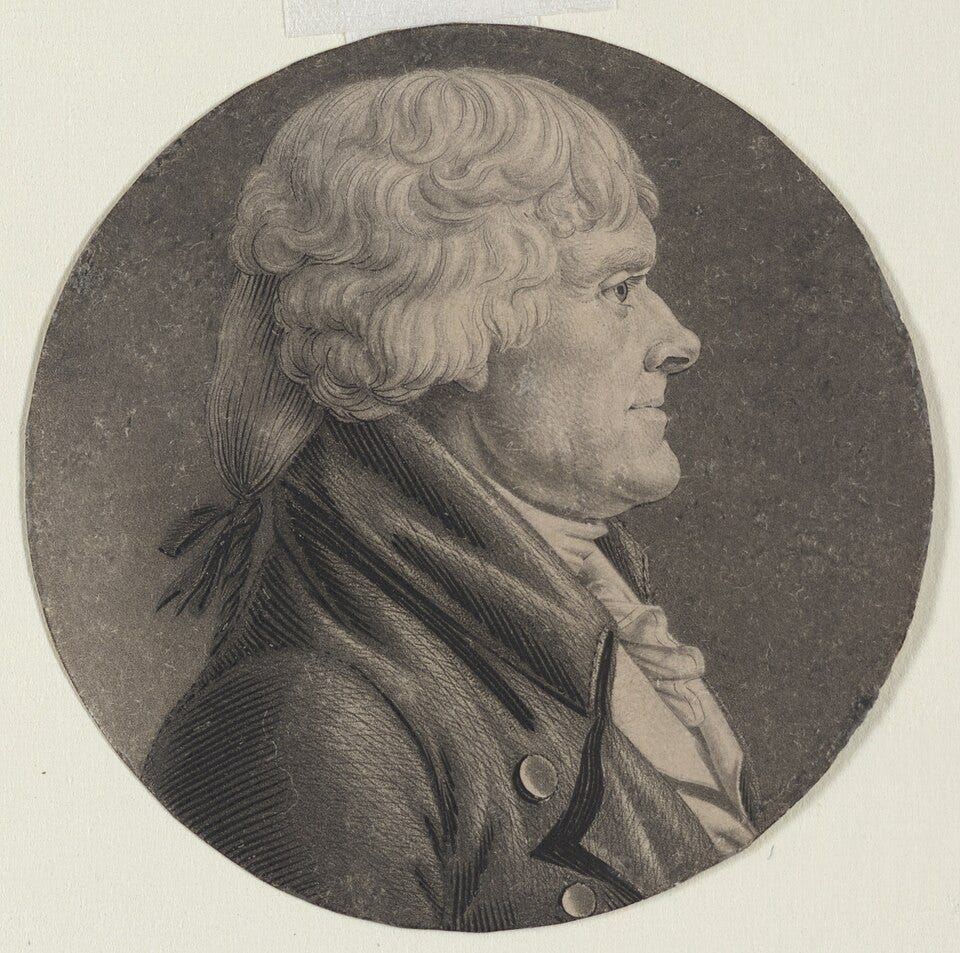Chapter 11
Rights basics
A long way still to go…
A simple definition
Positive vs. Negative Rights
What they should be…
What they’ve become…
Where do rights come from?
Where rights don’t come from
Chapter 11.1
Rights Basics
All eyes are opened, or opening, to the rights of man..
—Thomas Jefferson
Thomas Jefferson met his end at Monticello on July 4, 1826. As the primary author of the Declaration of Independence, it is fitting that he should depart this life on the anniversary of its issuance. Among his very last words were, “Is it the Fourth?” It was important that he make it to that day.
But he’s not the only one.
John Adams—his fellow president and founding father, sometime rival, and long-time friend—died on the very same day. Not knowing that Jefferson had died a few hours earlier, Adams’ last words were, “Thomas Jefferson survives.” For all their disagreements over the years, Adams was pleased to believe that his friend and colleague had made it to the Fourth as well.
On July 4th, 1776, these men set in motion a series of events whose ramifications continue to ripple across the American continent, and the whole of the world, to this day. But at the time, many people, especially in Europe, believed the fledgling republic would not survive.
A nation without a king? People opined that they might pull it off for a few years, but a country so conceived could not possibly make it to fifty.
And yet it did make it…and so did Adams and Jefferson. Both men died on the fiftieth anniversary of July 4th, 1776. Not the year before or after, but that benchmark fiftieth year.1 The magnitude of this “coincidence” no doubt gave people goosebumps at the time. For those who treasure the American founding, it still does.
But it gets stranger still.
Keep reading with a 7-day free trial
Subscribe to The Freedom Scale to keep reading this post and get 7 days of free access to the full post archives.


